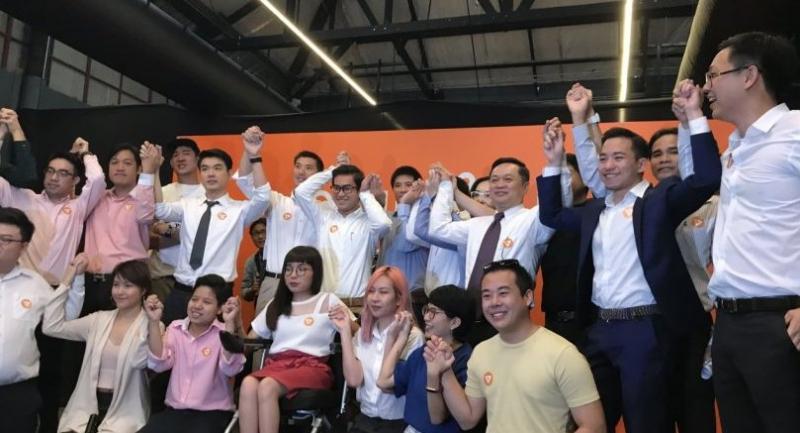New parties must tackle the great income divide

AS ELECTION APPROACHES, INEQUALITY IN WEALTH AND LAND OWNERSHIP PRESENTS THE COUNTRY’S BIGGEST CHALLENGE
THE HUGE income gap and wealth inequality presents a formidable task for political parties to solve.
Economic management has been a weak point of the current junta-backed government, and low-income groups, such as taxi drivers, street vendors and even middle-class workers, have been unhappy with the current situation.
Economic data suggest that a clear recovery began last year and it is expected to continue this year, yet the benefits have not yet spread wider to all sectors. So it is fertile ground for new political parties to propose new paths and new solutions to address the economic issues facing middle and lower-income earners. But that task may be formidable.
During the launch of the Future Forward Party, its two key leaders – billionaire Thanathorn Juangroongruangkit and law academic Piyabutr Saengkranokkul --– emphasised the importance of people’s participation in forming public policies covering politics, economics and society.
This idea is not only limited to the Future Forward Party. “Participation” has become a fashionable word for the young bloods, who have jumped in to form new political parties. They believe their participation will lead to more economic equality.
Thanathorn describes the state of the economy as “semi-monopolitic” and promises to break it down in order to create space for new entrants. “There are many undesirable factors in society that create such an economy. I will destroy all those things,” he promised.
After about half a century of economic development, Thailand has been praised for significantly reducing the number of absolutely poor people but income inequality has persisted. Looking around, one would find that just a few business groups control both the income and wealth of the country.
According to the National Economic and Social Development Board, the top 10 per cent of income earners had a 36.8 per cent share of national income,while the bottom 10 per cent had a 1.1 per cent share of income in 2013, which was the second year in the country’s 11th five-year plan (2012-2016). Meanwhile, research by Duangmanee Laovakul revealed that the top 20 per cent of land owners owned 79.9 per cent of the land in the country in 2013, while the bottom 20 per cent owned just 0.3 per cent. Among the priorities in the current development plan (2017-2021) is how to address the issue of inequality, even though the latest data suggests a slight improvement.
“The new government after the next election has to do more to support the rural economy and the poor urban population,” said Lae Dilokvidhyarat, an economist who specialises in labour issues.
Welfare cards and other measures implemented by the current government to help low-income earners will be insufficient, according to Lae. He said the government listened too much to big businesses at the expense of workers and other groups. However, he has high hopes for some of the new political parties.
“It is really good that a new party [the Future Forward Party] has proposed its political ideology,” he said, adding that the old parties usually “have policies but lack political ideology”.
Thanathorn, Piyabutr and other key founders of the Future Forward Party have insisted that they want people to participate in forming policies instead of just letting big businesses, specialists, technocrats and authoritarian rulers direct the country.
The party’s platform of embracing democracy and participation has drawn interest from both the mainstream media and social media.
Yet, not everyone is encouraged.
“I’m not impressed by anyone,” said Deunden Nikomborirak, research director at the Thailand Development Research Institute, an independent think-tank. She said she did not see any new or old politician qualified enough to win her vote.
“There is no candidate who has great experience in running public office, such as we see with US presidential candidates, who are often successful state governors before running for the presidency,” she said.
However, she suggested that if any political leaders wanted to address the semi-monopolistic economy, they would have to allocate an adequate budget to the Office of Trade Compettion Commision (OTCC).
The OTCC has been designed to tackle unfair trade practices, or a so-called monopolistic competition in which a few big businesses dominate the market and use unfair practices to create barriers for new entrants.
It is said that its previous failure has largely been due to the fact that the OTCC is under the control of the Commerce Ministry, which is often led by politicians from big business families or their nominees.
A new law, the Trade Competition Act BE 2560 (2017), makes the OTCC independent of the Commerce Ministry but it remains to be seen how the new government will solve income inequality.
